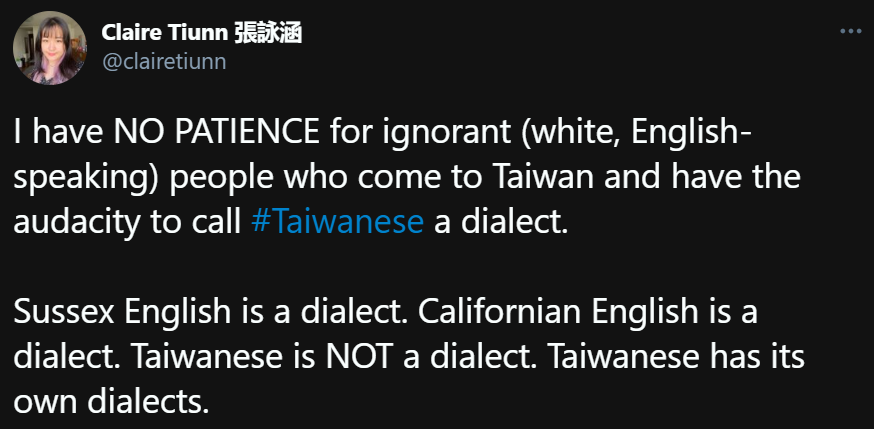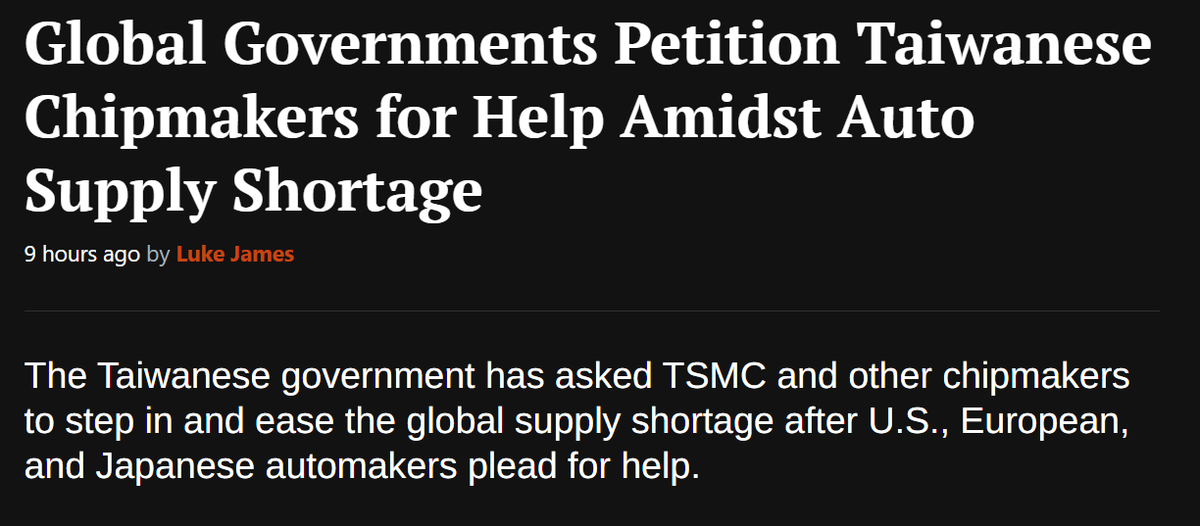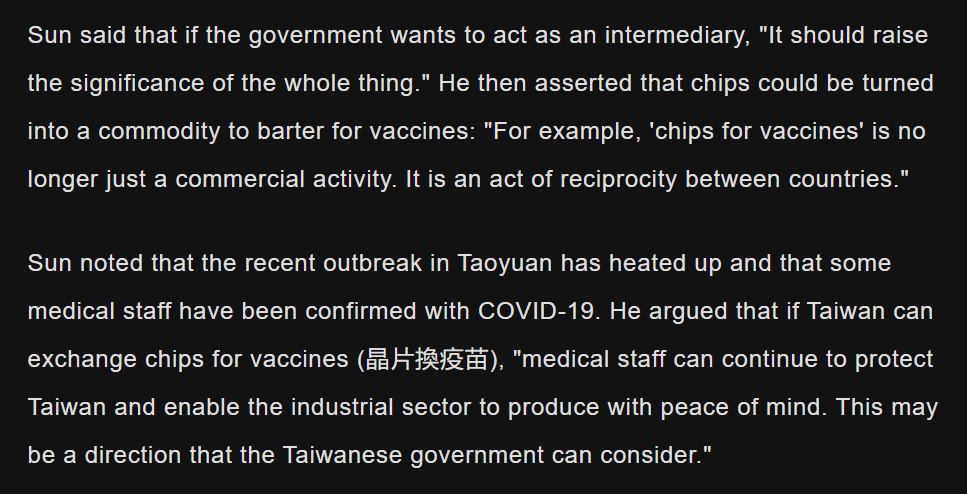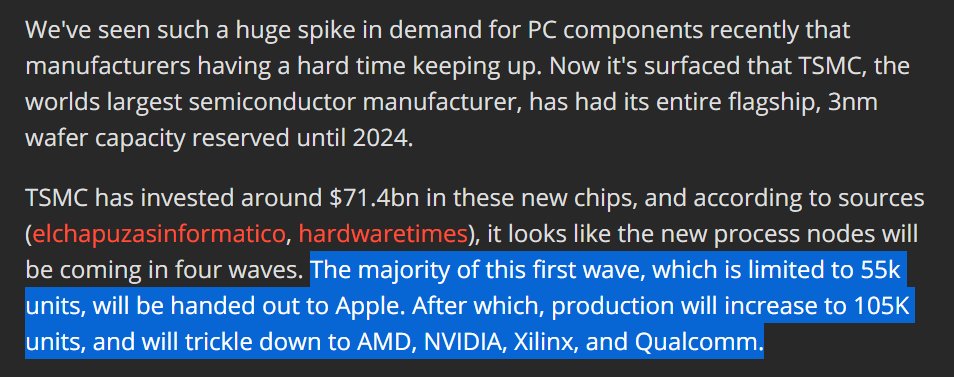
BREAKING: The DPP of Taiwan has privately indicated to the US it might back an independence referendum in August of this year
That's what's behind their moves on TSMC
https://twitter.com/TheDailyMao/status/1357254363920539654
And it's what the DPP privately communicated to the US during a talk about auto chip shortages yesterday - which, curiously, did not focus on auto chips and did not speak to the issue of prioritizing their production 

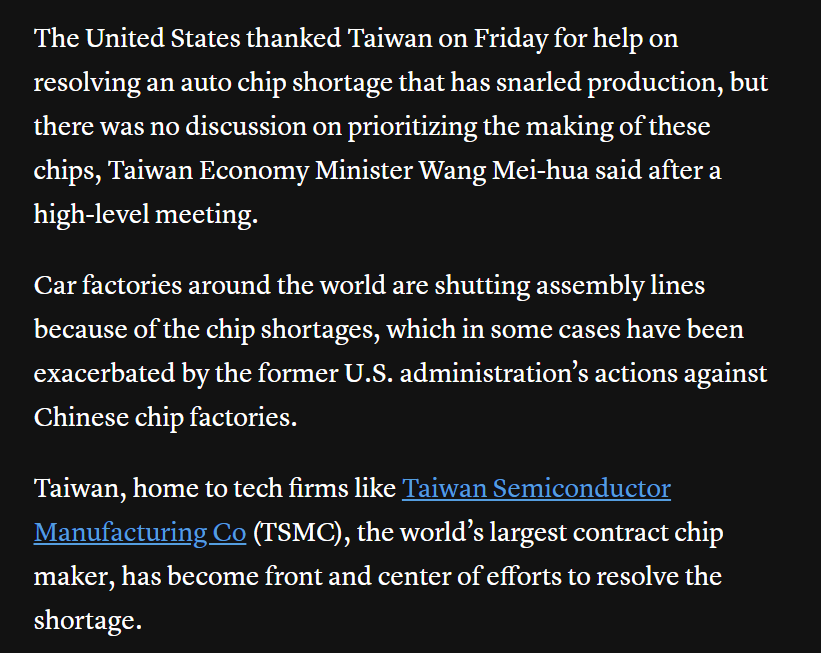
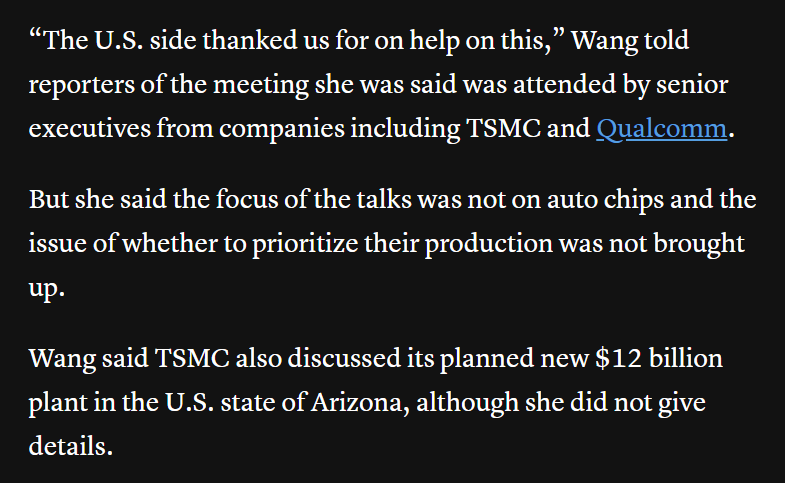
Instead, the DPP privately said they would continue squeezing world chip supplies to get diplomatic support for an independence resolution this year.
Additionally, both the TSMC plant in Arizona and ongoing 'shortages' for Chinese manufacturing are being dangled as carrots: support TW independence, and the DPP gives the US chipmaking expertise and will continue to weaken China's manufacturing sector
Taiwan's referundum act stipulates the next available referendum date is August of this year - so expect the DPP to begin building public support for this starting in June, if they choose to exercise this option 
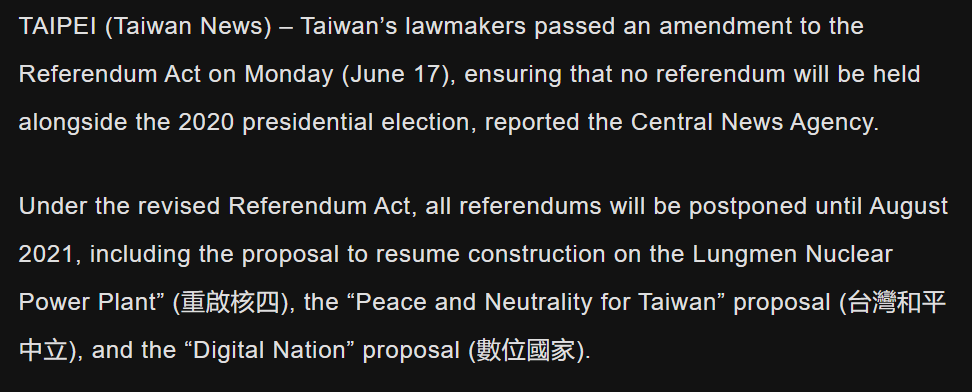
The DPP believes it is "now or never" for the referendum - public support for independence has peaked, and in a few years, the Chinese military will have force overmatch vs even the US+Japan in a Taiwan scenario 
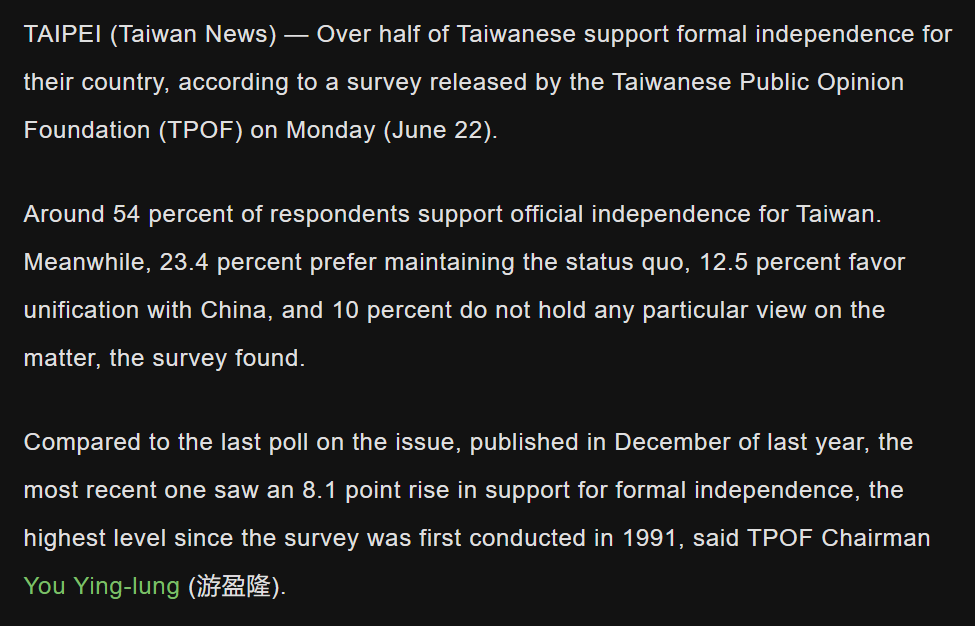
Additionally, there are parts of the US military and national security apparatus that want to force a confrontation with China sooner than later - before China gets any stronger, in other words
This is partly why TSMC's production lines have been booked full - certain customers are now aware that supplies may be interrupted later this year, so are stockpiling just in case
To the best of my knowledge, none of this has been disclosed publicly yet. If the ball starts rolling, expect a PR campaign to kick off sometime in June of this year, possibly on the 2nd anniversary of the start of the HK riots.
To repeat: this what a Chinese military officer meant when he told me that "leaving TSMC in the hands of Taiwan separatists is like leaving a loaded gun in the hands of a toddler."
One way or another, the adults will be put back in charge - and very, very soon.
/end
One way or another, the adults will be put back in charge - and very, very soon.
/end
• • •
Missing some Tweet in this thread? You can try to
force a refresh

